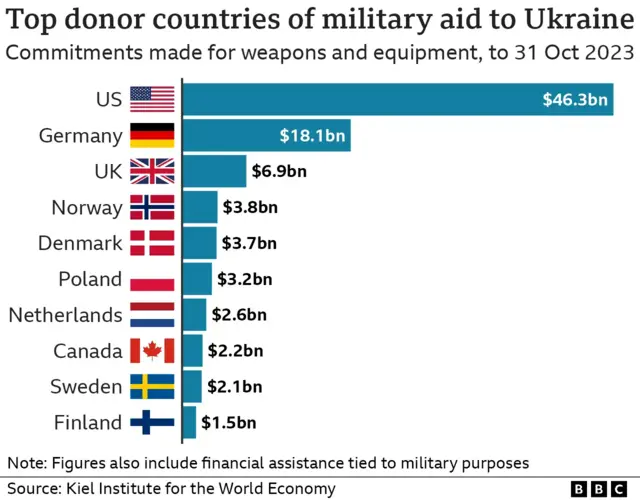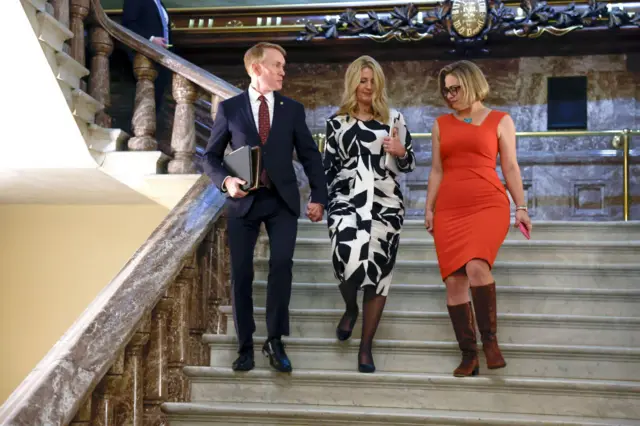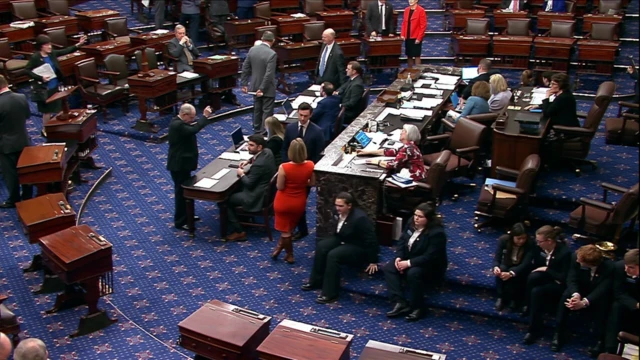That's it from uspublished at 23:37 GMT 7 February 2024
With proceedings in the Senate at a bit of a standstill, we're closing our live page now.
Senators are now trying to fashion a new version of a bill that will pass - a version which has stripped out all the border security measures, leaving the foreign aid parts.
But no vote is yet scheduled on this foreign aid package.
On Wednesday night, Republicans were reportedly holding discussions on adding border-related amendments to this version of the bill.
As a colleague on the Hill said earlier in a hopeless voice: “This is the Senate. There’s no time limit! This could go all night.”










